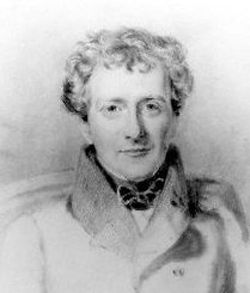Annotation:Lilla's a Lady: Difference between revisions
No edit summary |
No edit summary |
||
| Line 2: | Line 2: | ||
---- | ---- | ||
<p><font face="garamond, serif" size="4"> | <p><font face="garamond, serif" size="4"> | ||
'''LILLA'S A LADY.''' AKA - "Lila's a Lady." Scottish, Waltz and Air. G Major. Standard tuning (fiddle). AAB. The words to the song "Lilla's a Lady" were written by English writer, poet, songwriter and dramatist Thomas Haynes Bayly [https://en.wikipedia.org/wiki/Thomas_Haynes_Bayly] (1797-1839) as part of his "Songs to Rosa." The words begin:[[File:bayly.jpg| | '''LILLA'S A LADY.''' AKA - "Lila's a Lady." Scottish, Waltz and Air. G Major. Standard tuning (fiddle). AAB. The words to the song "Lilla's a Lady" were written by English writer, poet, songwriter and dramatist Thomas Haynes Bayly [https://en.wikipedia.org/wiki/Thomas_Haynes_Bayly] (1797-1839) as part of his "Songs to Rosa." The words begin:[[File:bayly.jpg|250px|thumb|right|Thomas Haynes Bayly]] | ||
<blockquote> | <blockquote> | ||
''The church bells are ringing, the village is gay,''<br> | ''The church bells are ringing, the village is gay,''<br> | ||
Revision as of 06:52, 29 November 2015
Back to Lilla's a Lady
LILLA'S A LADY. AKA - "Lila's a Lady." Scottish, Waltz and Air. G Major. Standard tuning (fiddle). AAB. The words to the song "Lilla's a Lady" were written by English writer, poet, songwriter and dramatist Thomas Haynes Bayly [1] (1797-1839) as part of his "Songs to Rosa." The words begin:

The church bells are ringing, the village is gay,
And Lilla is deck'd in her bridal array.
She's woo'd and she's won
By a proud baron's son--
And Lilla's a lady.
And see o'er the valley who rides at full speed,
A gallant young knight on a spirited steed,
And why starts the youth
When they tell him the truth--
That Lilla's a lady.
The song was set to a German air.
Researcher Conor Ward has found a version in the music manuscript collection of Leonard-Kernan c. 1844-1850 of Abbeyshrule, Co. Longford, under the title "Lilly Bo."
Source for notated version:
Printed sources: Kerr (Merry Melodies, vol. 3), c. 1880's; No. 303, p. 33. Manson (Hamilton's Universal Tune Book, vol. 2), 1846; p. 68.
Recorded sources:
